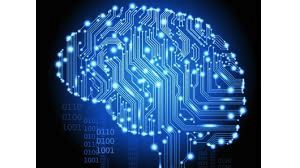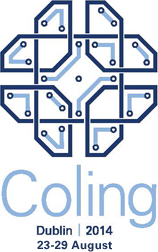Call for Papers
Motivation
The way we look at dictionaries (their creation and use) has changed dramatically over the past 30 years. While being considered as an appendix to grammar in the past, by now they have moved to centre stage. Indeed, there is hardly any task in NLP which can be conducted without them. Also, rather than being static entities (data-base view), dictionaries are now viewed as dynamic networks, i.e. graphs, whose nodes and links (connection strengths) may change over time. Interestingly, properties concerning topology, clustering and evolution known from other disciplines (society, economy, human brain) also apply to dictionaries: everything is linked, hence accessible, and everything is evolving. Given these similarities, one may wonder what we can learn from these disciplines. In this 4th edition of the CogALex workshop we therefore also invite scientists working in these fields, with the goal to broaden the picture, i.e. to gain a better understanding concerning the mental lexicon and to integrate these findings into our dictionaries in order to support navigation. Given recent advances in neurosciences, it appears timely to seek inspiration from neuroscientists studying the human brain. There is also a lot to be learned from other fields studying graphs and networks, even if their object of study is something else than language, for example biology, economy or society.
Topic of Interest
This workshop is about possible enhancements of lexical resources and electronic dictionaries. To perform the groundwork for the next generation of such resources we invite researchers involved in the building of such tools. The idea is to discuss modifications of existing resources by taking the usersí needs and knowledge states into account, and to capitalize on the advantages of the digital media. For this workshop we solicit papers including but not limited to the following topics, each of which can be considered from various points of view: linguistics, neuro- or psycholinguistics (tip of the tongue problem, associations), network related sciences (sociology, economy, biology), mathematics (vector-based approaches, graph theory, small-world problem), etc.
-
I) Analysis of the conceptual input of a dictionary user
- What does a language producer start from (bag of words)?
- What is in the authors' minds when they are generating a message and looking for a word?
- What does it take to bridge the gap between this input and the desired output (target word)?
-
II) The meaning of words
- Lexical representation (holistic, decomposed)
- Meaning representation (concept based, primitives)
- Revelation of hidden information (distributional semantics, latent semantics, vector-based approaches: LSA/HAL)
- Neural models, neurosemantics, neurocomputational theories of content representation
-
III) Structure of the lexicon
- Discovering structures in the lexicon: formal and semantic point of view (clustering, topical structure)
- Creative ways of getting access to and using word associations (reading between the lines, subliminal communication)
- Evolution, i.e. dynamic aspects of the lexicon (changes of weights)
- Neural models of the mental lexicon (distribution of information concerning words, organisation of words)
-
IV) Methods for crafting dictionaries or indexes
- Manual, automatic or collaborative building of dictionaries and indexes (crowd-sourcing, serious games, etc.)
- Impact and use of social networks (Facebook, Twitter) for building dictionaries, for organizing and indexing the data (clustering of words), and for allowing to track navigational strategies, etc.
- (Semi-) automatic induction of the link type (e.g. synonym, hypernym, meronym, association, collocation, ...)
- Use of corpora and patterns (data-mining) for getting access to words, their uses, combinations and associations
-
V) Dictionary access (navigation and search strategies) & interface issues
- Search based on sound, meaning or associations
- Search (simple query vs multiple words)
- Context-dependent search (modification of usersí goals during search)
- Recovery
- Navigation (frequent navigational patterns or search strategies used by people)
- Interface problems, data-visualisation
Instructions for Authors
Papers should follow the COLING main conference formatting details (COLING 2014 formatting requirements) and should be submitted as a PDF-file via the START workshop manager at https://www.softconf.com/coling2014/WS-1/
Contributions can be short or long papers.
Short paper submission must describe original and unpublished work without exceeding six (6) pages. Characteristics of short papers include: a small, focused contribution; work in progress; a negative result; an opinion piece; an interesting application nugget.
Long paper submissions must describe substantial, original, completed and unpublished work without exceeding twelve (12) pages. Reviewing will be double blind, so the papers should not reveal the authors' identity. Accepted papers will be published in the workshop proceedings.
Important Dates
Papers
1st Call for papers
March 12,2014
Paper submission
June 8,2014
Paper notification
June 29,2014
Camera-ready paper submission
July 7, 2014
Workshop
Workshop Date
august 23, 2014
Registration and Participation Policy
In the 4th CogALex, one of the authors of an accepted paper must register to the workshop and must present the paper during the workshop. In case, authors do not abide by these conditions, their paper will be rejected from the workshop and will not appear in the proceedings. We have to adopt this strict policy in the concern of providing the best quality of the organisation and of giving the respect to our peers. We may consider the valid reasons for an author for his/her non availability for presenting his/her paper during the workshop, but when it is informed to us well in time.


